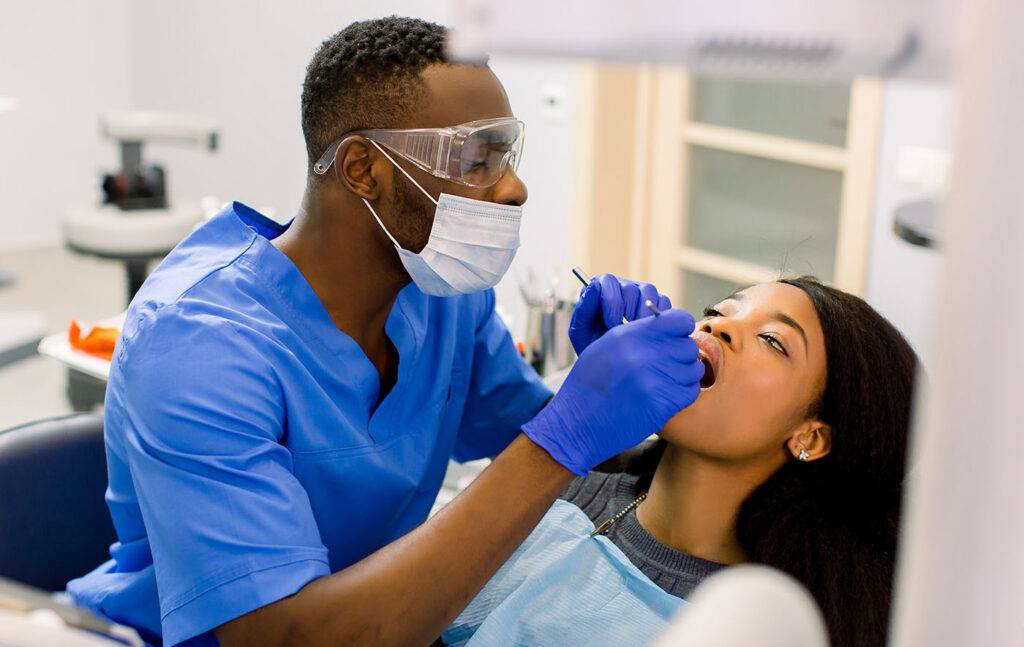Oral health is often perceived as a matter limited to the mouth—a bright smile, fresh breath, and healthy gums. However, science increasingly highlights the profound connection between oral health and overall systemic health.
Educating patients on this mouth-body connection is crucial for fostering a deeper understanding of how maintaining good oral hygiene can positively impact their entire body.
The Link Between Oral Health and Systemic Diseases
The mouth is often referred to as the gateway to the body. It harbors millions of bacteria, some of which are beneficial, while others can cause disease.
Poor oral hygiene can lead to conditions such as gum disease (periodontitis) and tooth decay, which are not only localized issues but also linked to systemic health problems.
Cardiovascular Diseases:
Infections in the mouth can allow bacteria to enter the bloodstream, potentially leading to inflammation of blood vessels and an increased risk of heart disease, stroke, and atherosclerosis.
Diabetes:
Gum disease and diabetes have a bidirectional relationship. Poor glycemic control can exacerbate gum disease, while severe periodontitis can impair blood sugar levels, complicating diabetes management.
Respiratory Infections:
Bacteria from oral infections can be aspirated into the lungs, contributing to pneumonia, especially in elderly or immunocompromised patients.
Adverse Pregnancy Outcomes:
Pregnant individuals with untreated gum disease are at higher risk for complications such as preterm birth and low birth weight.
Alzheimer’s Disease:
Research suggests that chronic gum disease may be linked to cognitive decline due to the spread of oral bacteria and associated inflammation.
Educating Patients: Bridging the Knowledge Gap
Educating patients about the mouth-body connection can empower them to take proactive steps toward better oral and overall health. Here are some strategies to effectively communicate this vital information:
Simplify Complex Concepts:
Use easy-to-understand language to explain how oral bacteria can travel through the bloodstream and affect various organs.
Provide Visual Aids:
Charts and infographics showing the connection between oral health and systemic diseases can make the information more accessible and engaging.
Highlight Daily Habits:
Emphasize the importance of brushing, flossing, and regular dental checkups in preventing not just oral issues but also broader health complications.
Tailor Advice to Individual Needs:
For patients with specific conditions like diabetes or heart disease, explain how improving oral hygiene can directly benefit their health.
Encourage Open Dialogue:
Create a safe space for patients to ask questions and express concerns about their oral health and its broader implications.
Proactive Steps for Improved Oral and Systemic Health
Encouraging patients to adopt a holistic approach to their health can significantly reduce their risk of systemic diseases linked to poor oral hygiene. Key recommendations include:
Maintain Routine Dental Care: Regular visits to the dentist help detect and manage issues before they escalate.
Adopt a Balanced Diet: Nutrient-rich foods support oral health and strengthen the immune system.
Quit Smoking: Tobacco use is a major risk factor for both oral and systemic health issues.
Manage Chronic Conditions: Conditions like diabetes require diligent management to reduce their impact on oral health.
Stay Informed: Patients should be encouraged to seek credible information about oral-systemic links.
Understanding the connection between oral health and systemic diseases underscores the importance of prioritizing dental care as part of overall health management.
By educating patients about this critical link, dental professionals can inspire positive changes that not only improve oral health but also enhance their patients’ quality of life. Together, we can ensure that oral care is seen not as an isolated effort but as an integral part of holistic well-being.





